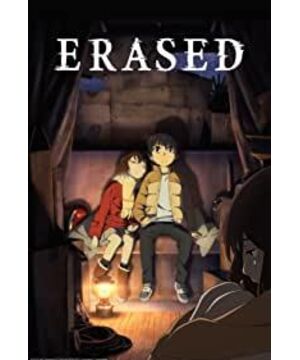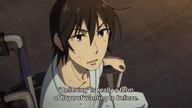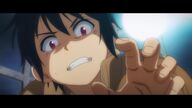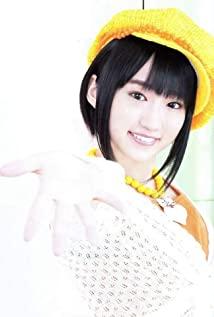(This comment is mainly for comics, and it is recommended that friends who have watched Fan Fan also read the comics)
After watching this episode, the author feels that the overall rhythm is not bad, but inexplicably feels that the ending seems to be too hasty, the logic is a bit forced, and the character of Yadaixue has not been portrayed very well. These places undoubtedly make the author feel a little bit. It's a pity, so I went to supplement the comics with doubts, and found that the comics did a good job in these places, which is why the author came back to the animation to supplement the comment - I hope everyone can go and see the comics that are not limited by funds and space. full story.
About trust
After I read the Fanhe manga, I think "trust" is arguably one of the biggest themes of this story.
First of all, the story begins with Sachiko's "distrust" of Satoru: she didn't choose to believe his trust in Brother Courage - although she did so for a reason.
And Airi's trust in Satoru is undoubtedly an important factor in the progress of the story. "It's not 'believing', it's 'wanting to believe', it's to make others believe in themselves." I don't know how much power her words gave Wu Wu, but from the results, Wu did not seek help from anyone when he reenacted for the first time. Instead, he thought of being a "hero" to complete the rescue alone; but in the second reenactment, he used the power of his friends and chose to trust them. It can be said that this is the main reason why he successfully rescued several "victims". reason.
Xian Ye's "trust" in Wu comes from his "wanting to be a hero too", but also from his sense of justice as a lawyer's son, and his trust in the end supports his years of searching for the real murderer. .
About the void
"Filling some of your own shortcomings is called life." When Yatsushiro said this sentence at the graduation ceremony, this work's discussion of "emptiness" began.
Going back to the past again and again is actually a way for Satoru to fill his own void, and Yatsushiro watching others die for him is also a way to fill in the void. "The essence of good and evil is that people fill their own shortcomings." But is this really the case? In fact, the motives of the two are completely opposite, one is to protect, the other is to destroy.
In fact, Satoru himself has also committed some deviant behaviors - smashing windows, kidnapping and even trying to kill Kadai's mother, but why does his behavior as a whole become "good deeds"? It is because the "hero" in his heart is driving him to pursue "justice that no one knows about". Of course, fortunately, he has a rational sage to guide him, otherwise he might make a big mistake because of it.
And what about the eight generations? His flaw is actually no longer clinging to "survival", but clinging to "repairing behavior" to break death. But a lot of what he does is completely for himself, so the motivation is pathological. His tragedy is that he fails to recognize the beauty of everyday life, and pursues too much excitement and madness, and eventually loses what he has. As far as characterization is concerned, Yatsushiro in the manga can be said to be very successful, his behavioral logic is self-consistent, his story is the inducement of his morbid behavior and psychology, and he has his own views and opinions on "emptiness". From the outlook on life derived from it, then such a character will live.
About the ending
Let’s talk about the ending of the animation first. It can be said that the most detracting point of this animation is the forced deletion of the ending, which caused the originally good sense of rhythm to be broken in an instant. "I can't live without you" is what a love scene! I understand that animation may need to take care of the audience, so I added a bit of "corrupt" elements, but it is better to speed up the front and make the final opponent's play well, because the ending (climax) is often the essence of a story, if it hits the street here, you can Said it will greatly reduce the word of mouth (but we can see that the final score is still quite high). By the way, in the animation, the male protagonist's feelings for Airi are too understated, which makes some viewers feel a little "NTR", but this problem does not exist in the original work.
Let's talk about the end of the comic again. The opponent's play at the end of the comic does not use turning points to stimulate the reader's adrenal glands, and detonates the conflict at the final climax, which can be said to be a very, very classic and wonderful ending. And the author's use of the "narrator's trick" to deceive readers again and again makes the work really can be called a very good reasoning story, and only a small part of the animation adaptation makes the ending very strange.
Finally, the comics' rumors have also made a very good supplement to the characters and behaviors of several characters (especially the so-called "NTR" part), and it is strongly recommended that friends who like this fanfic go to read the comics.
View more about Erased reviews











